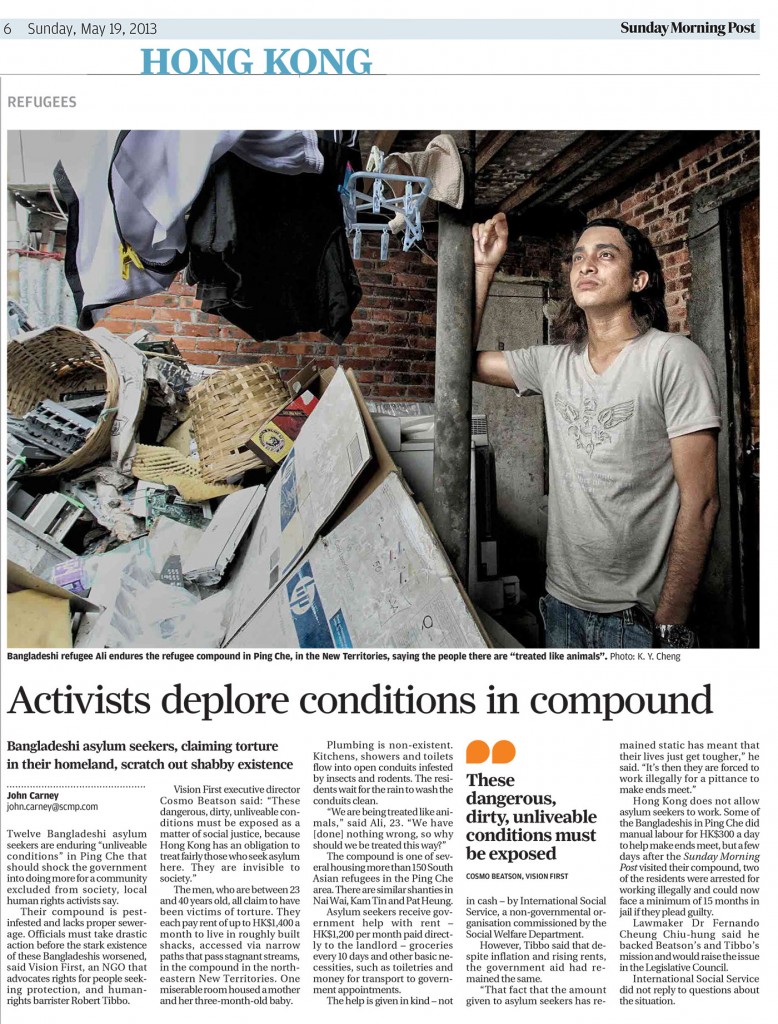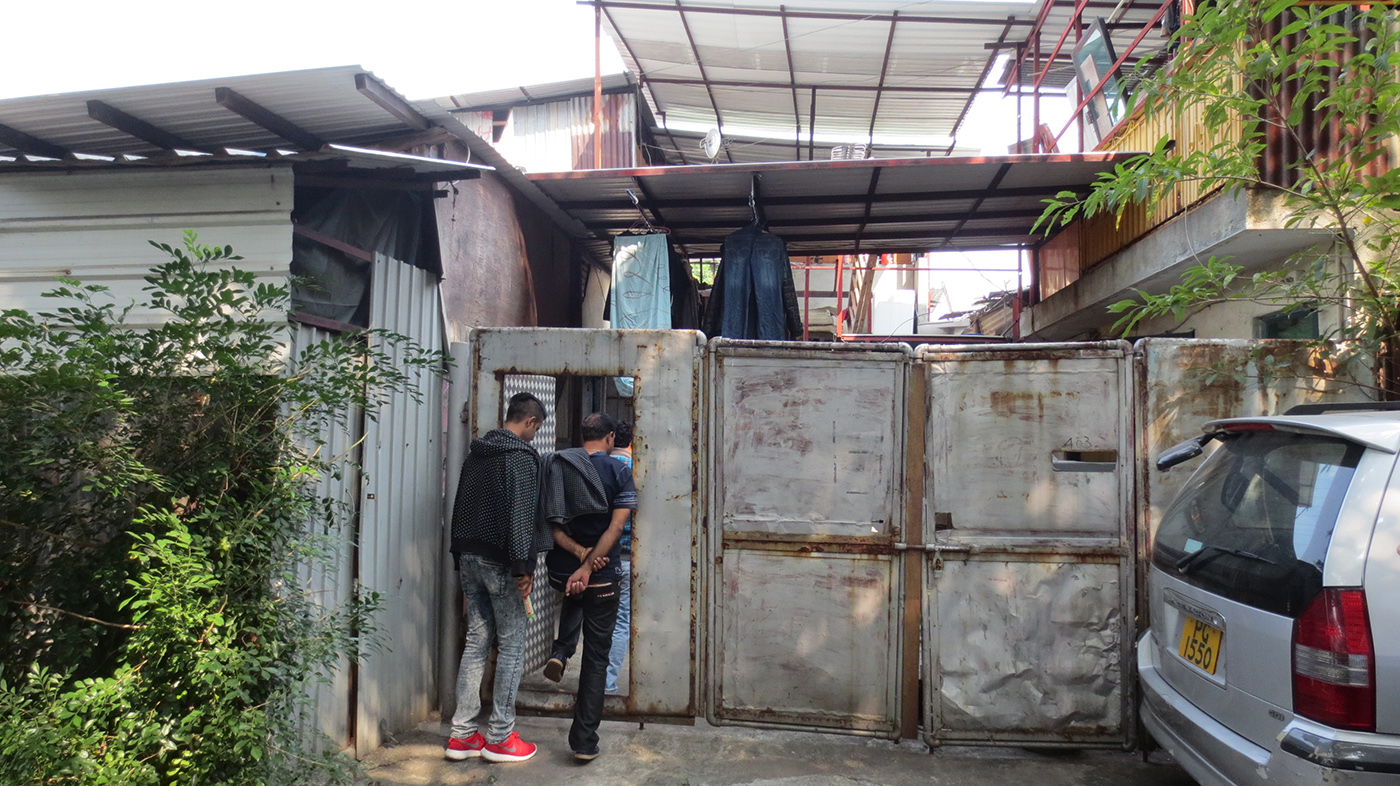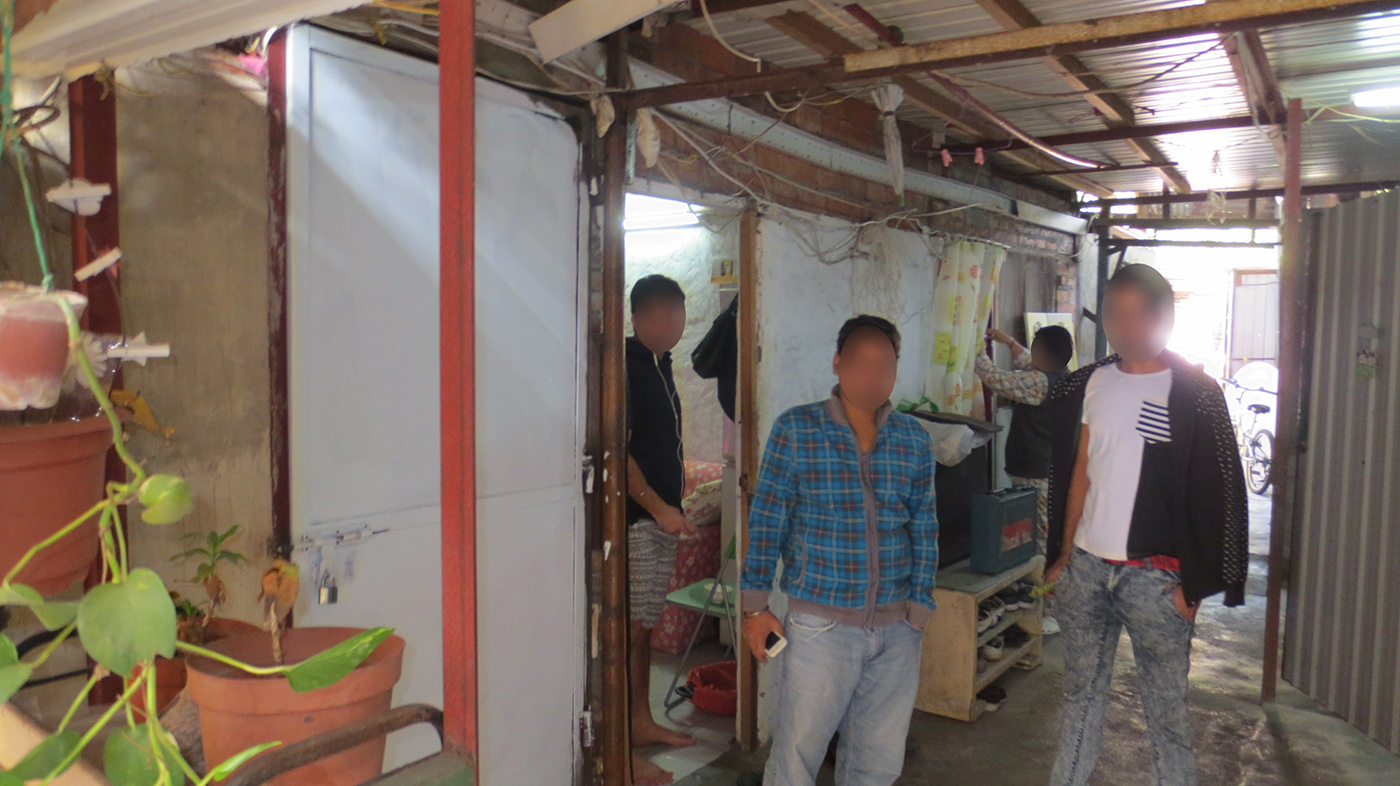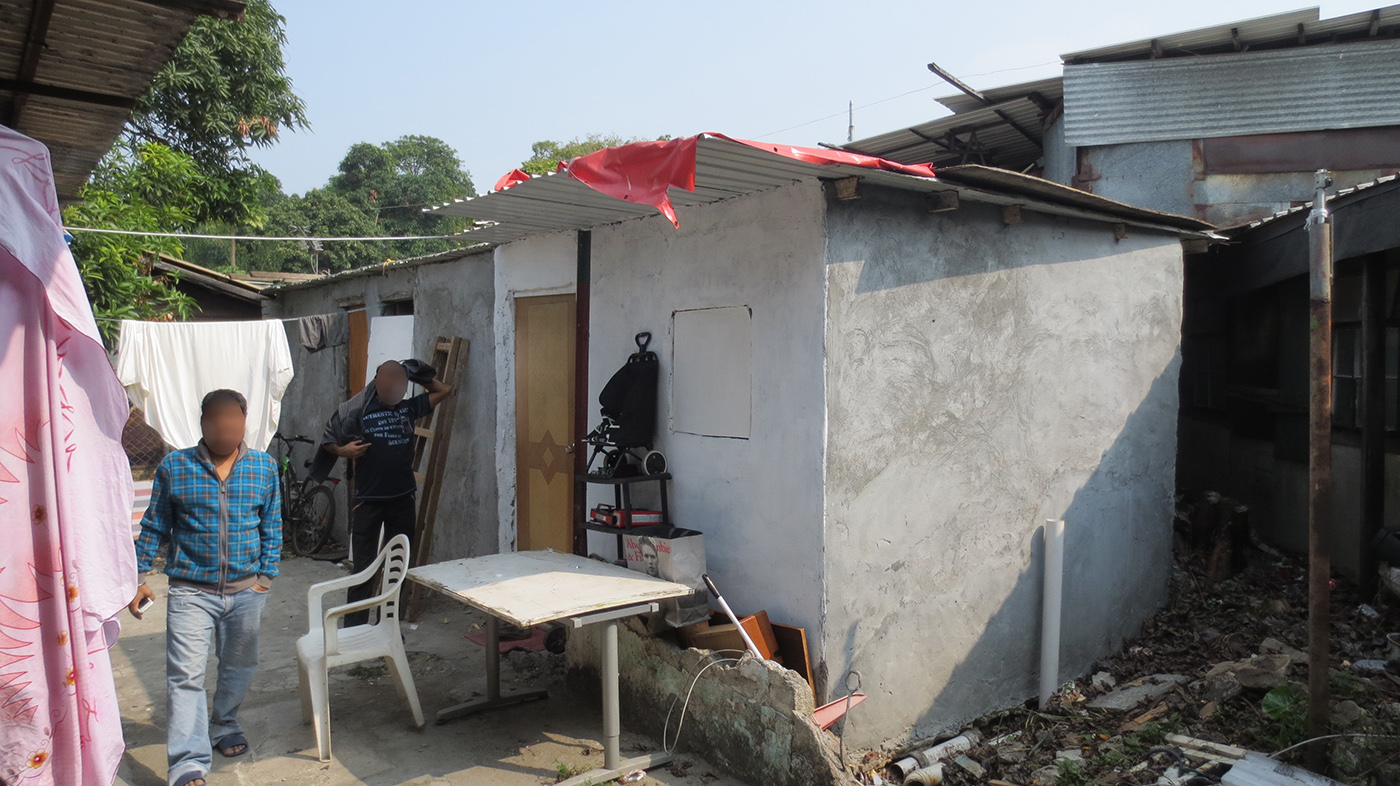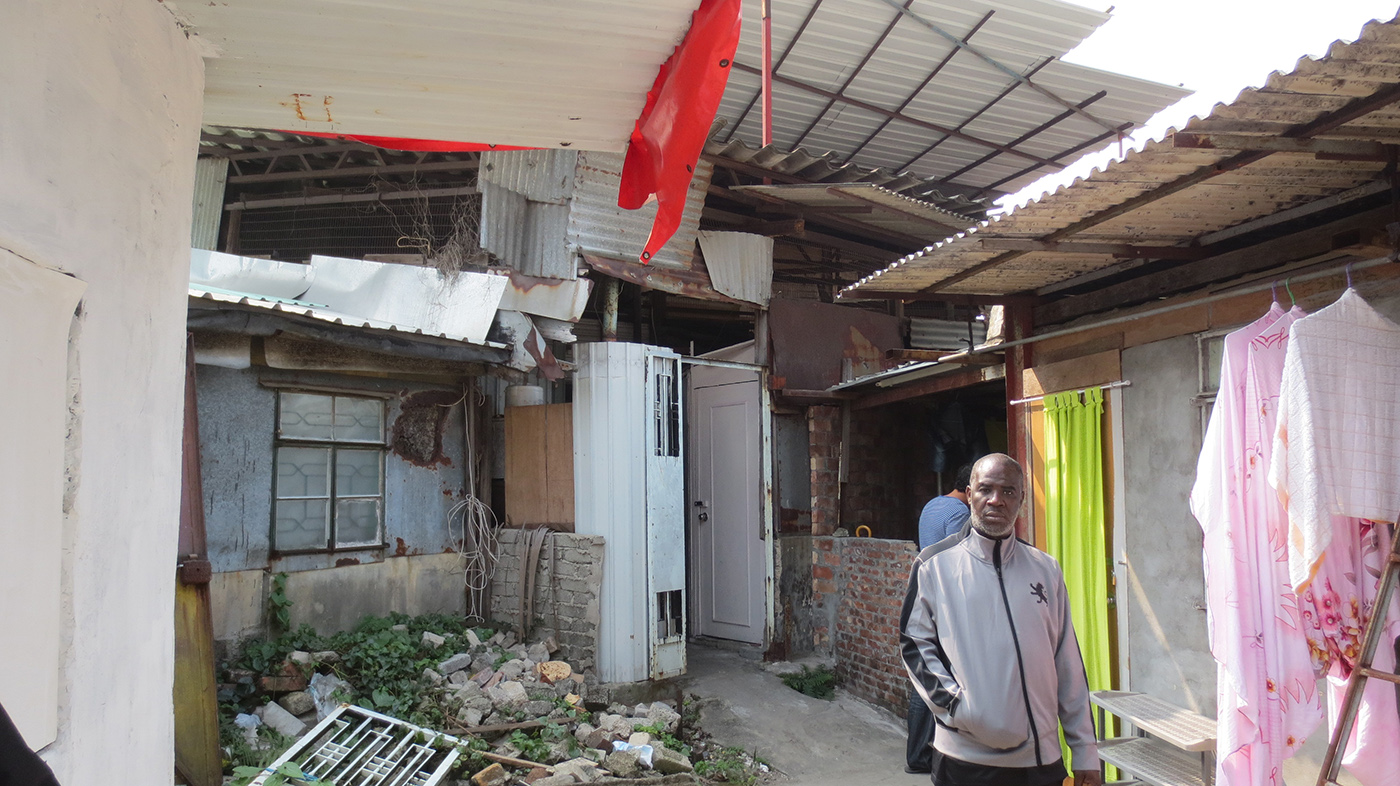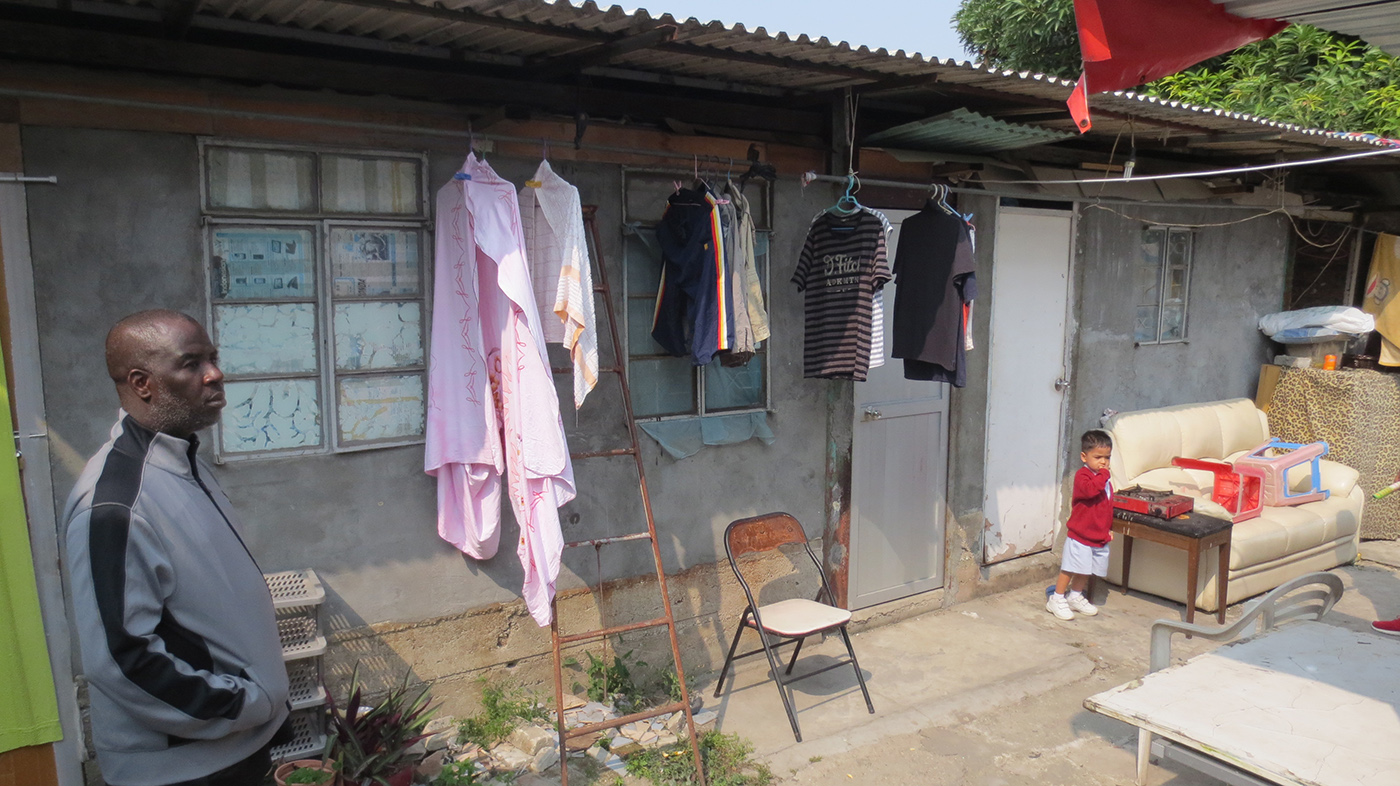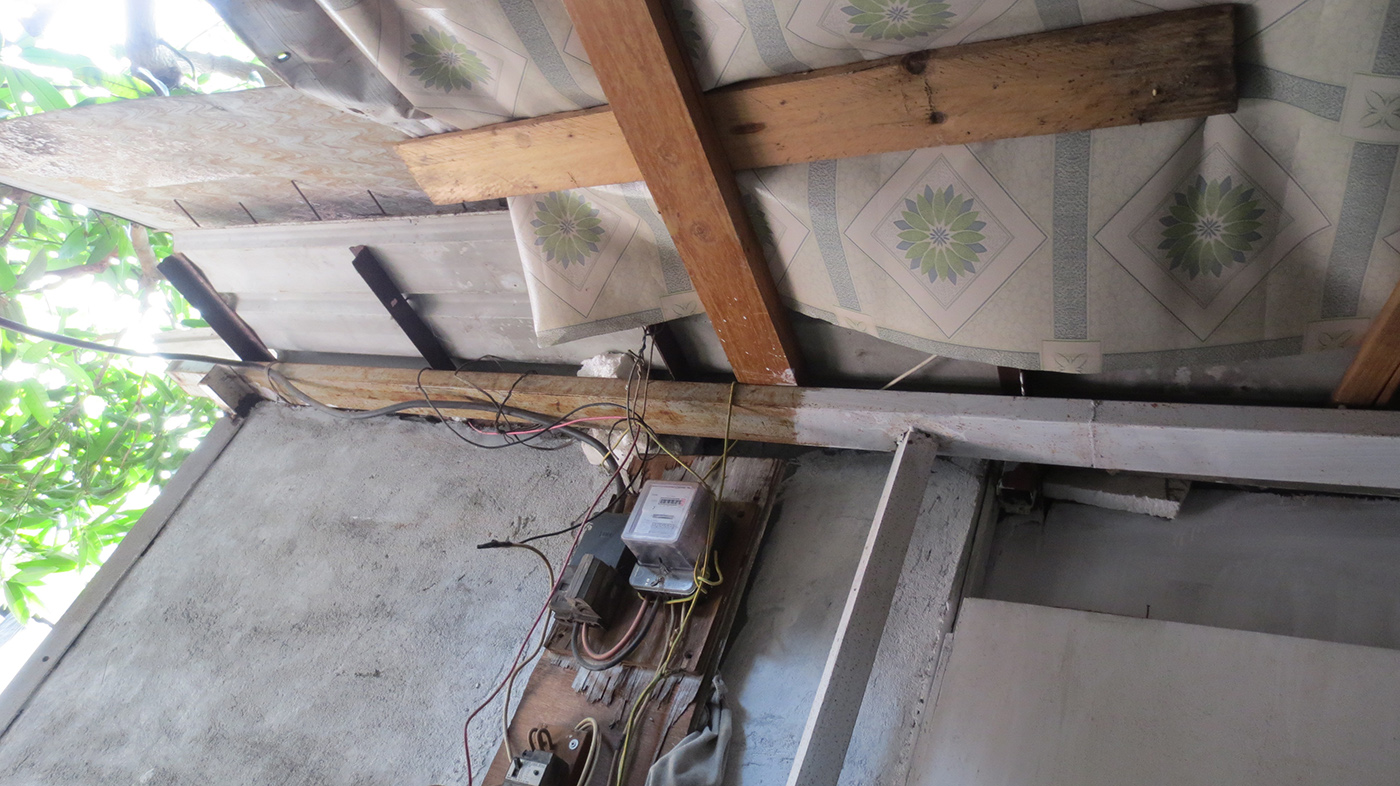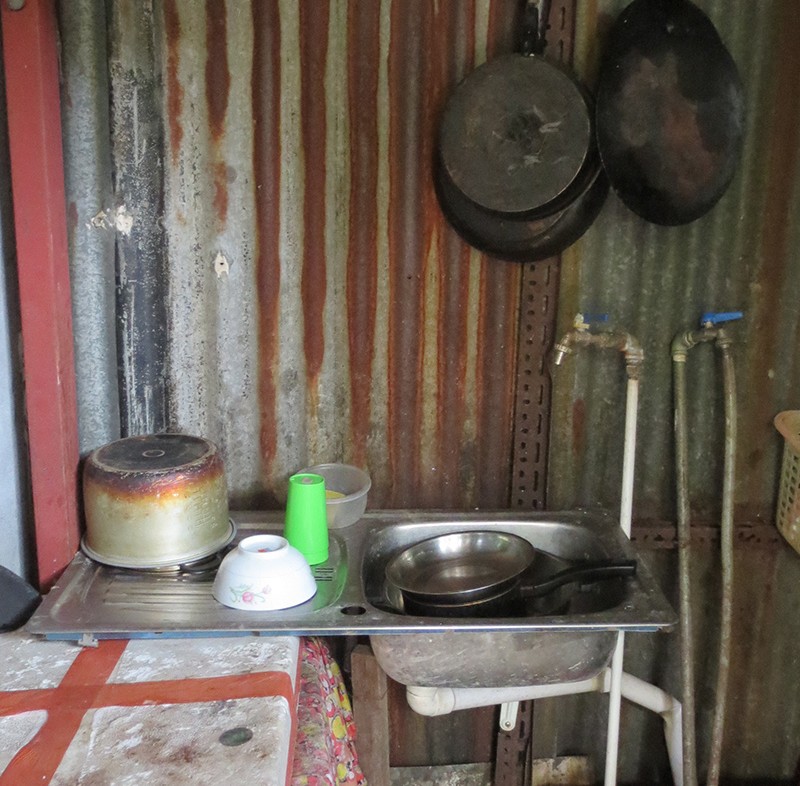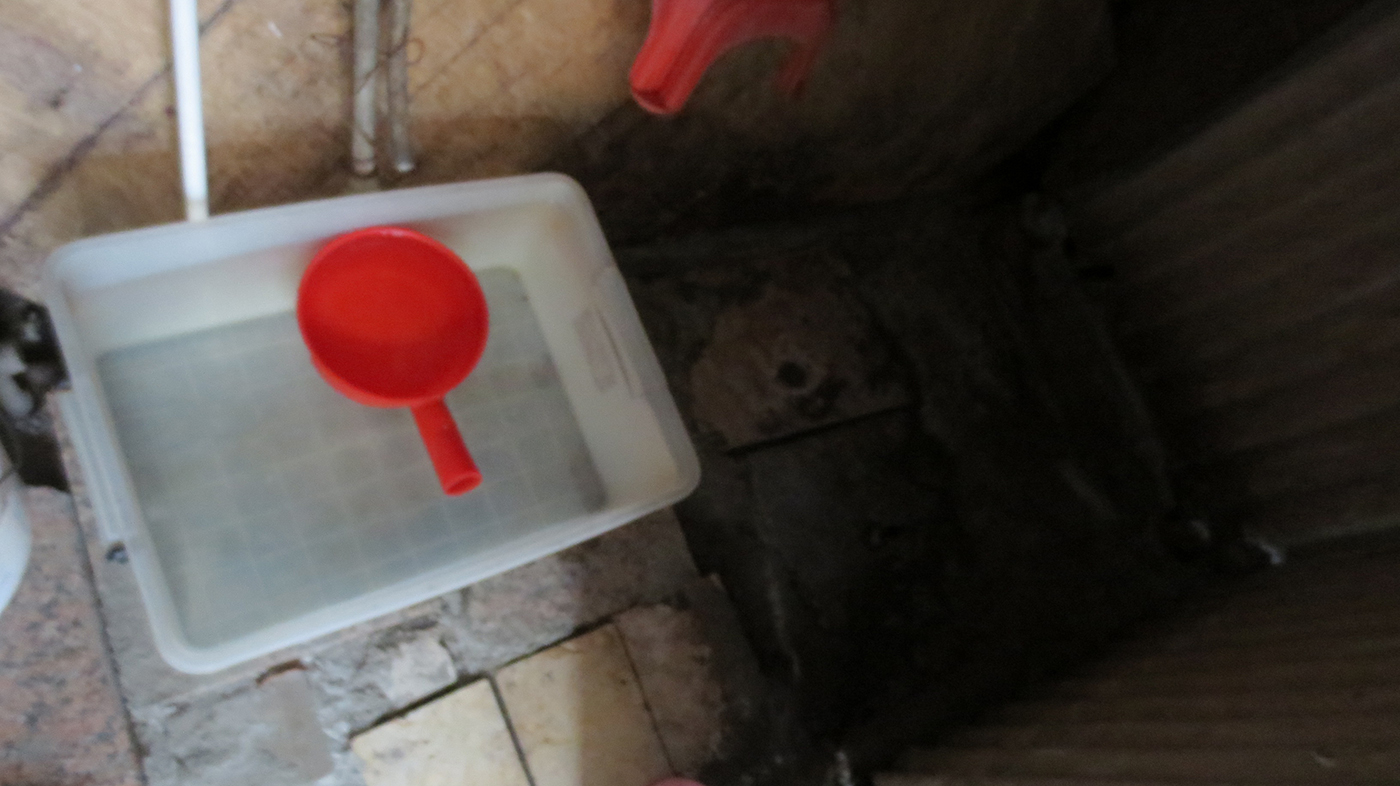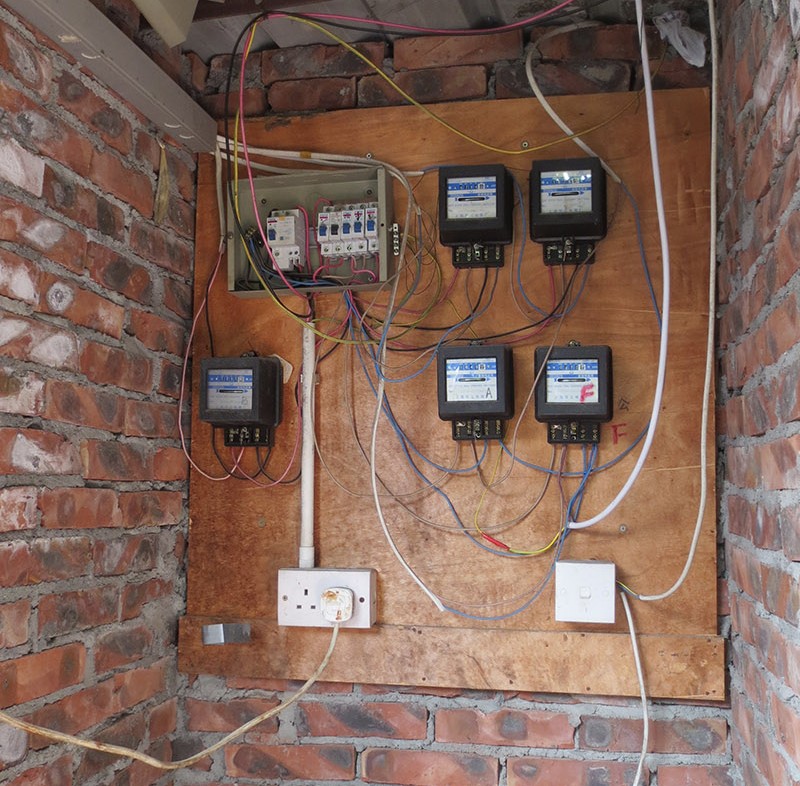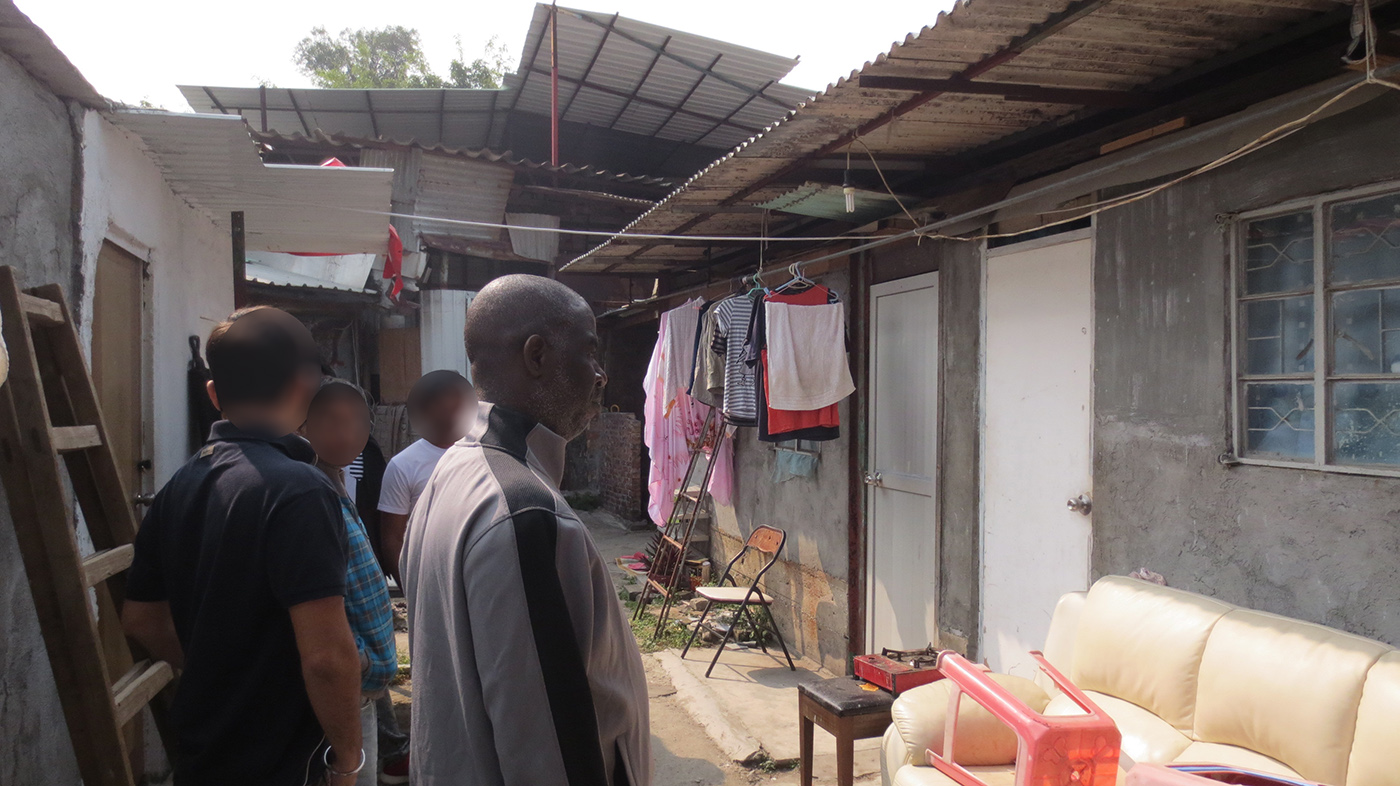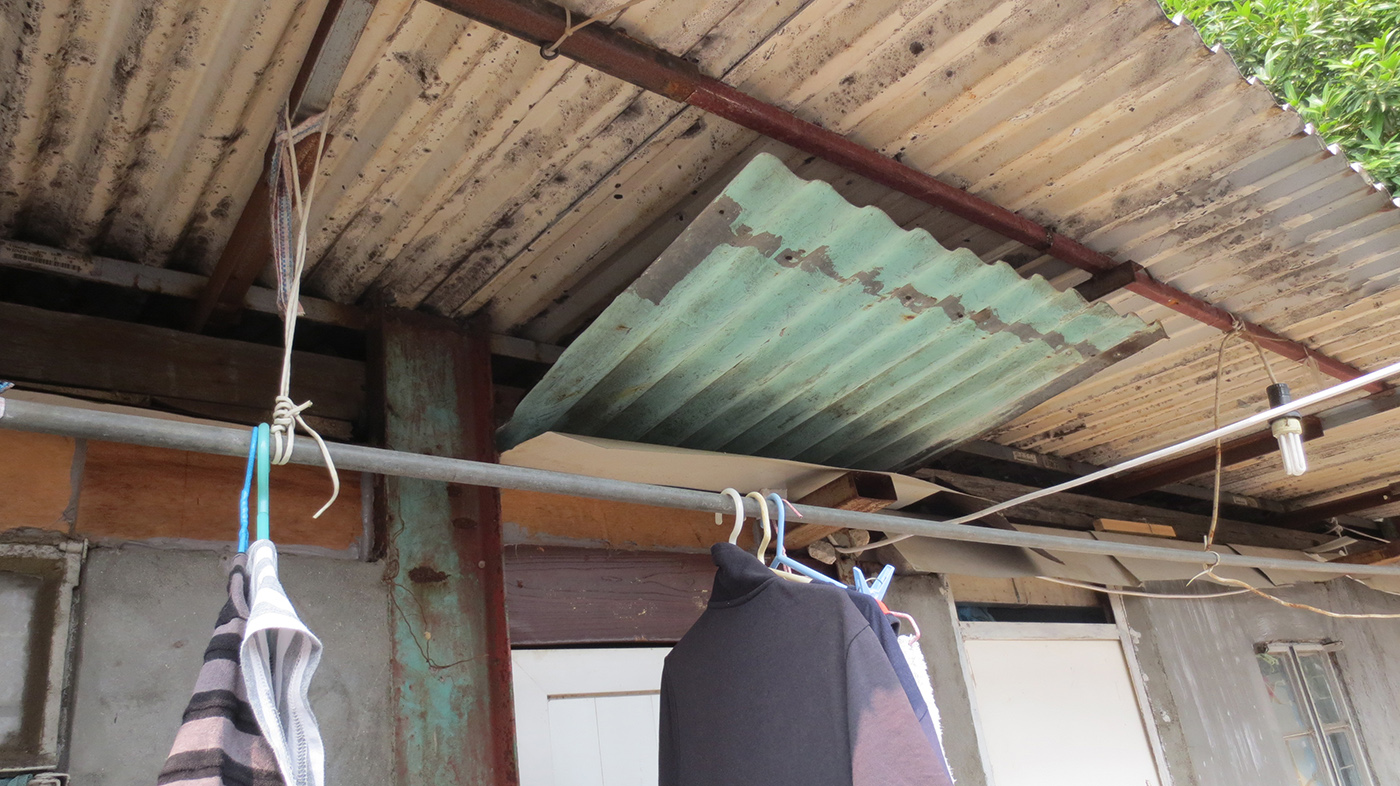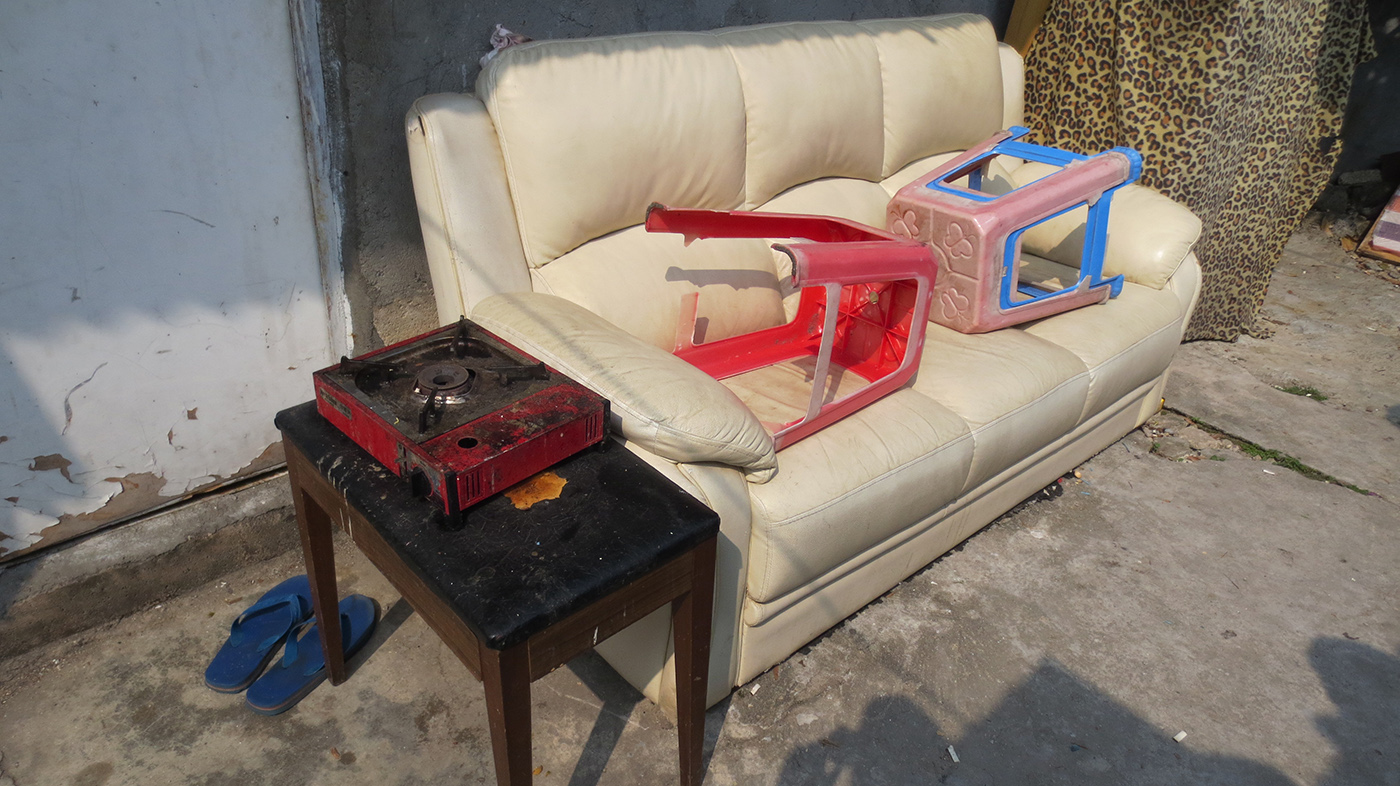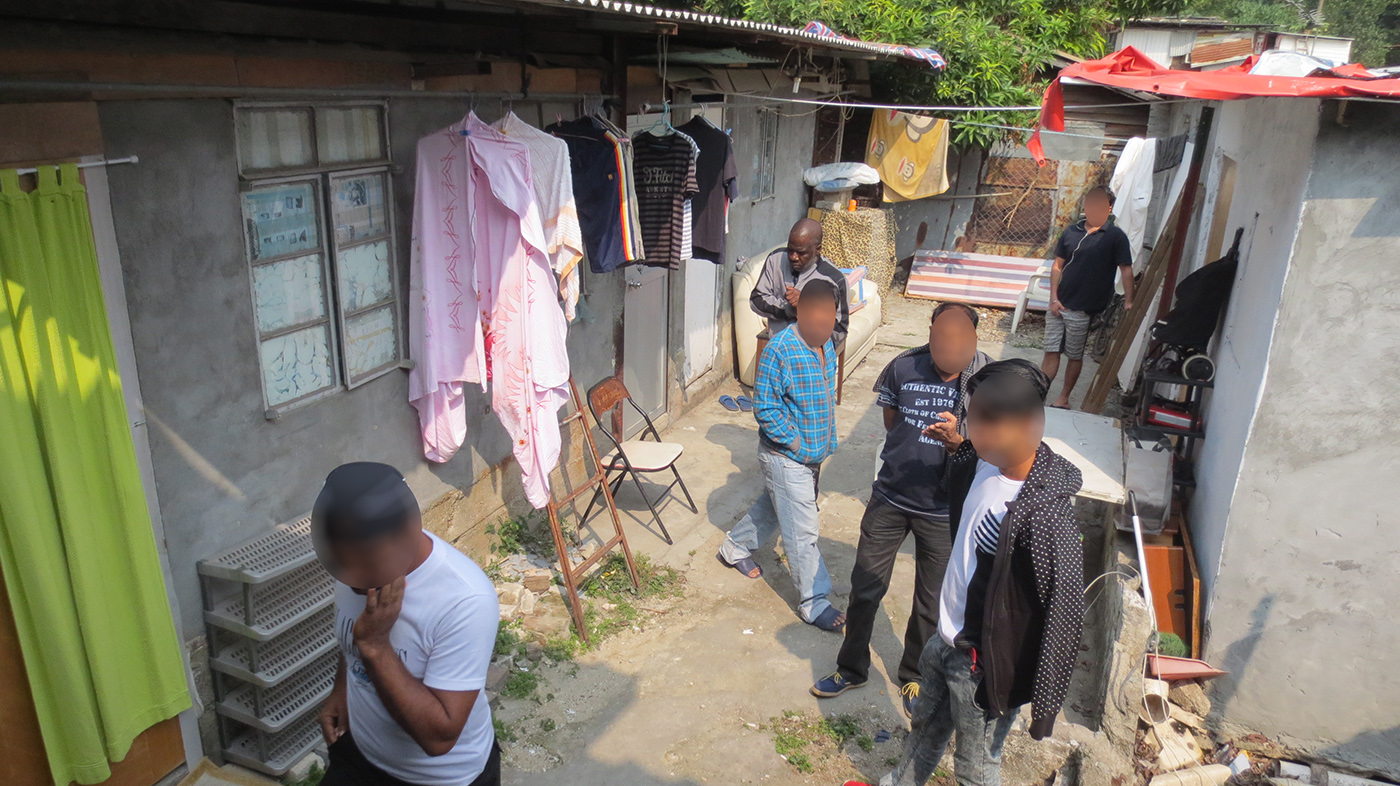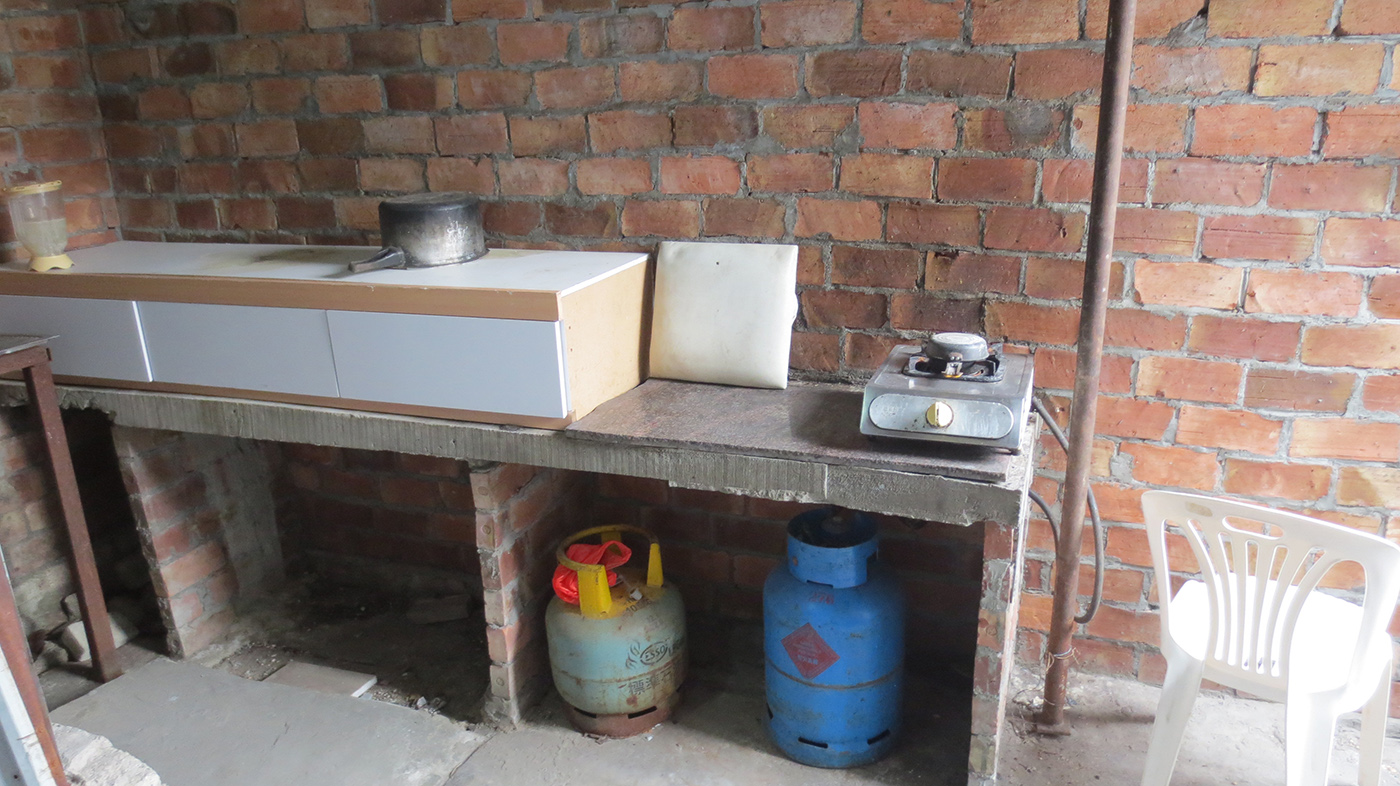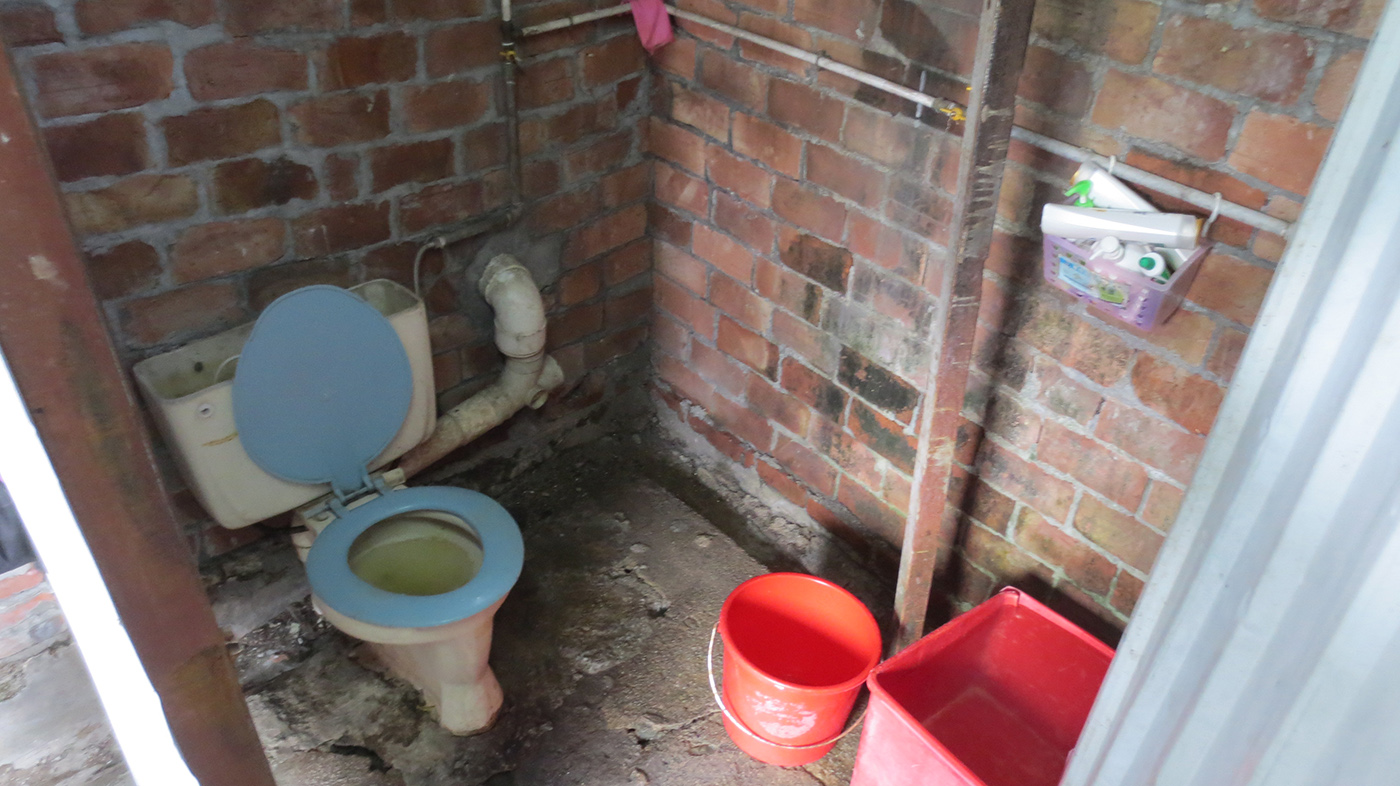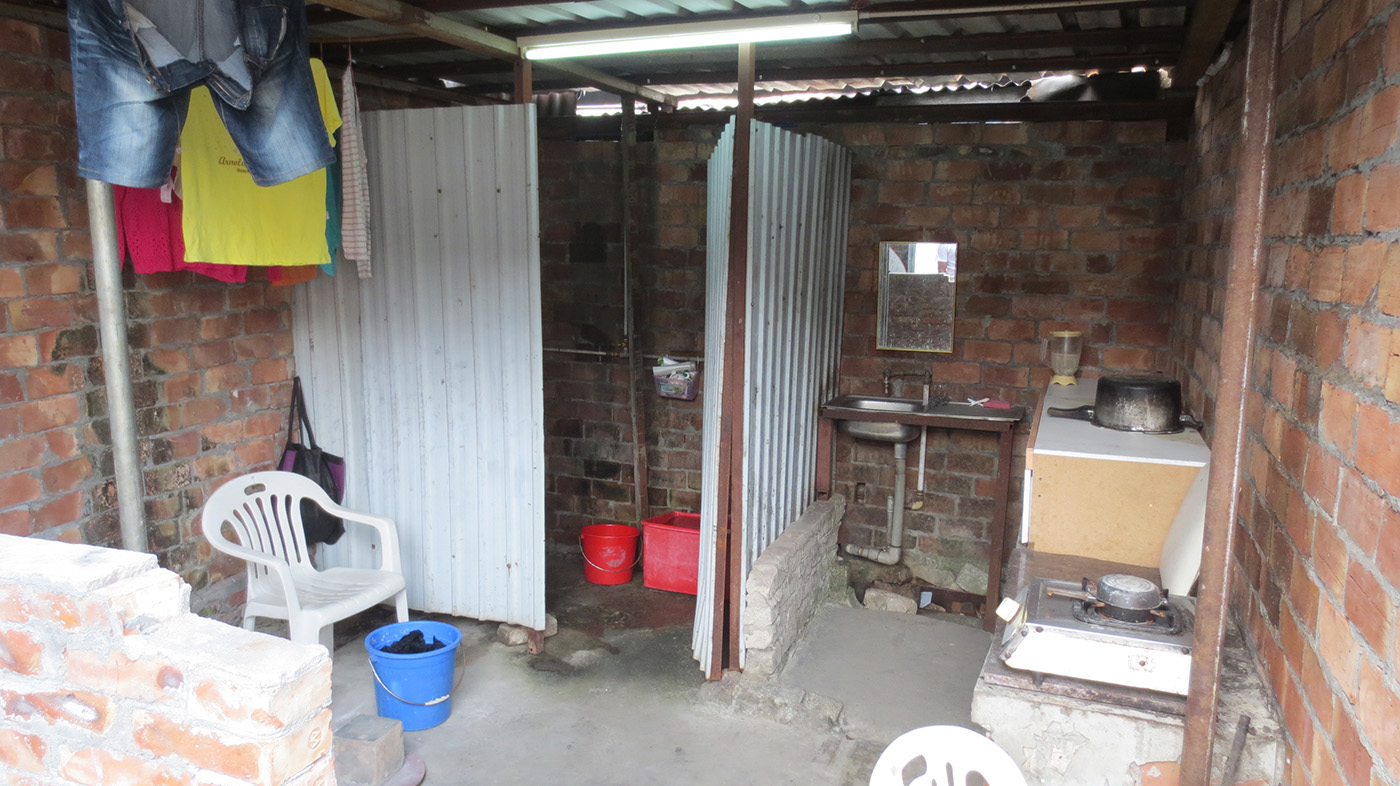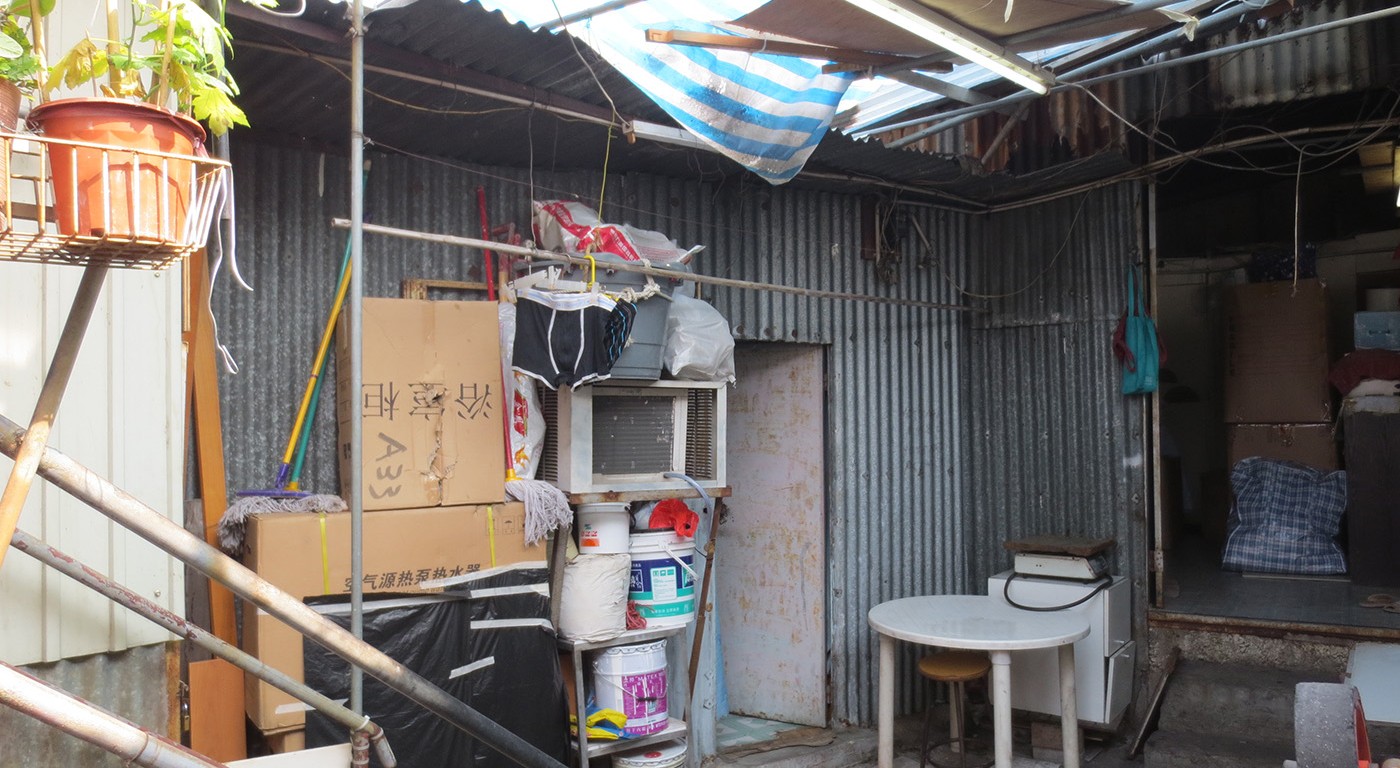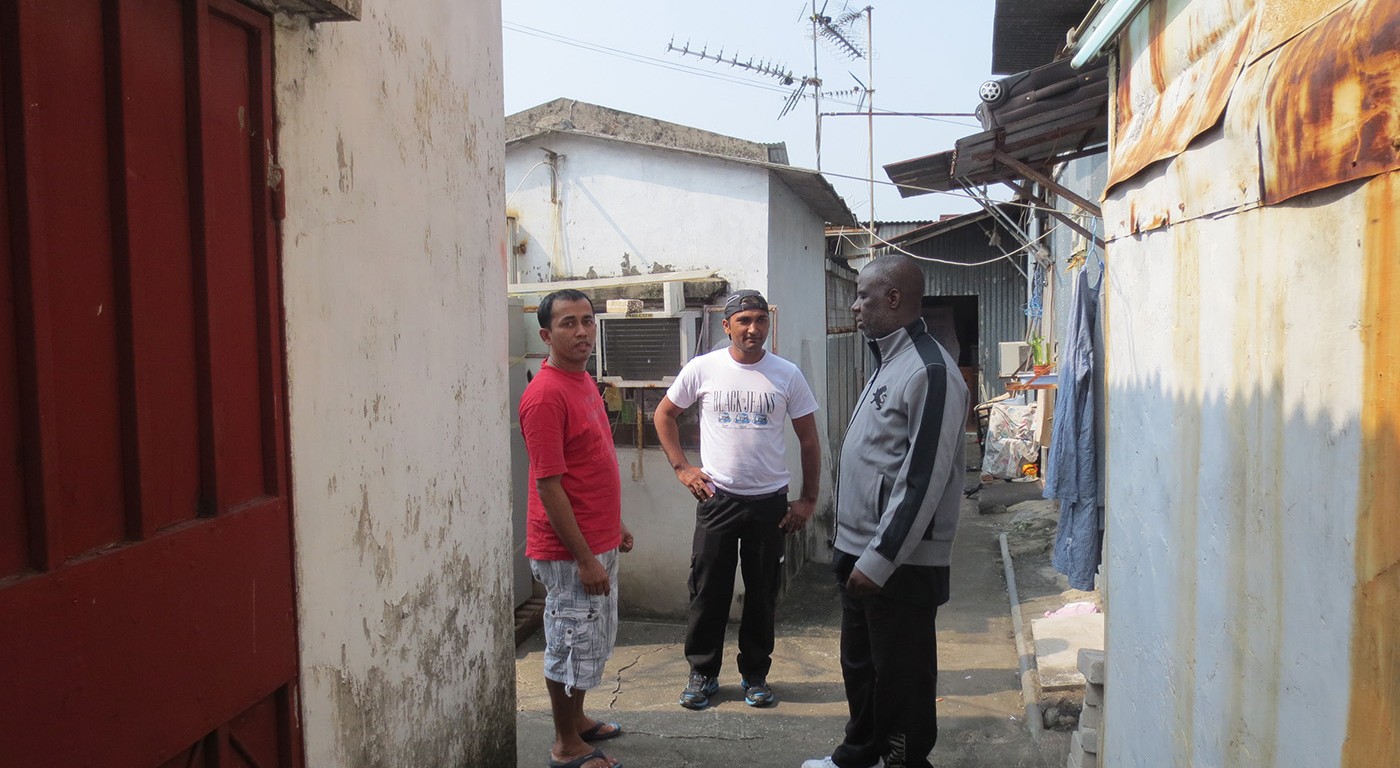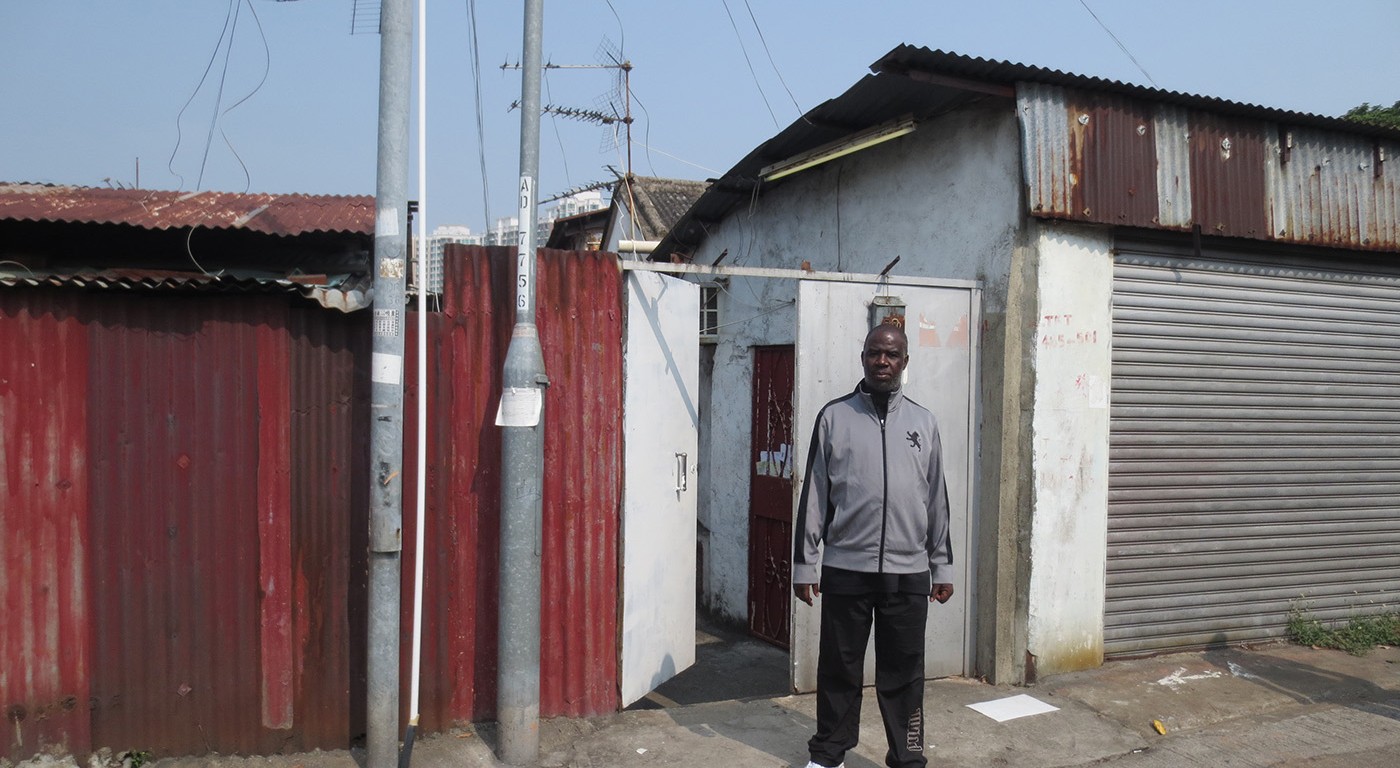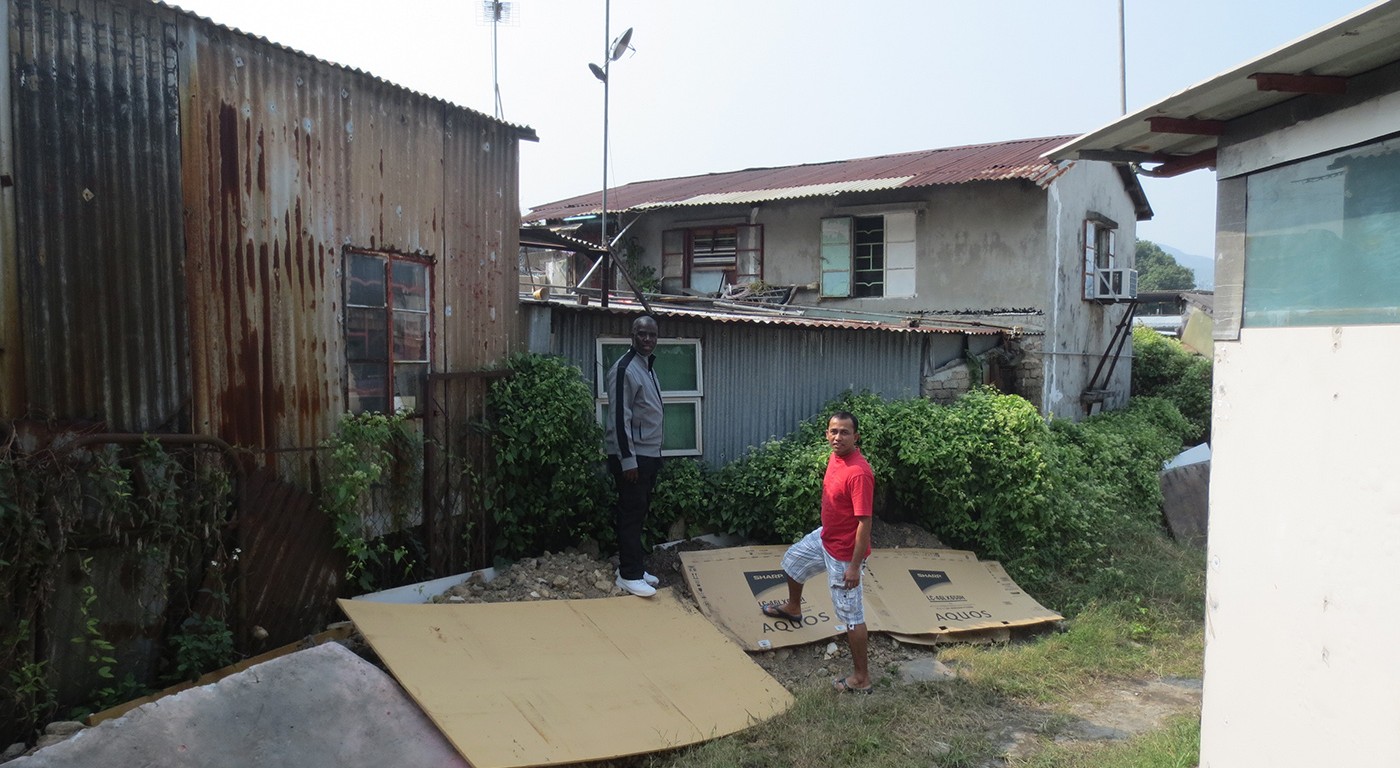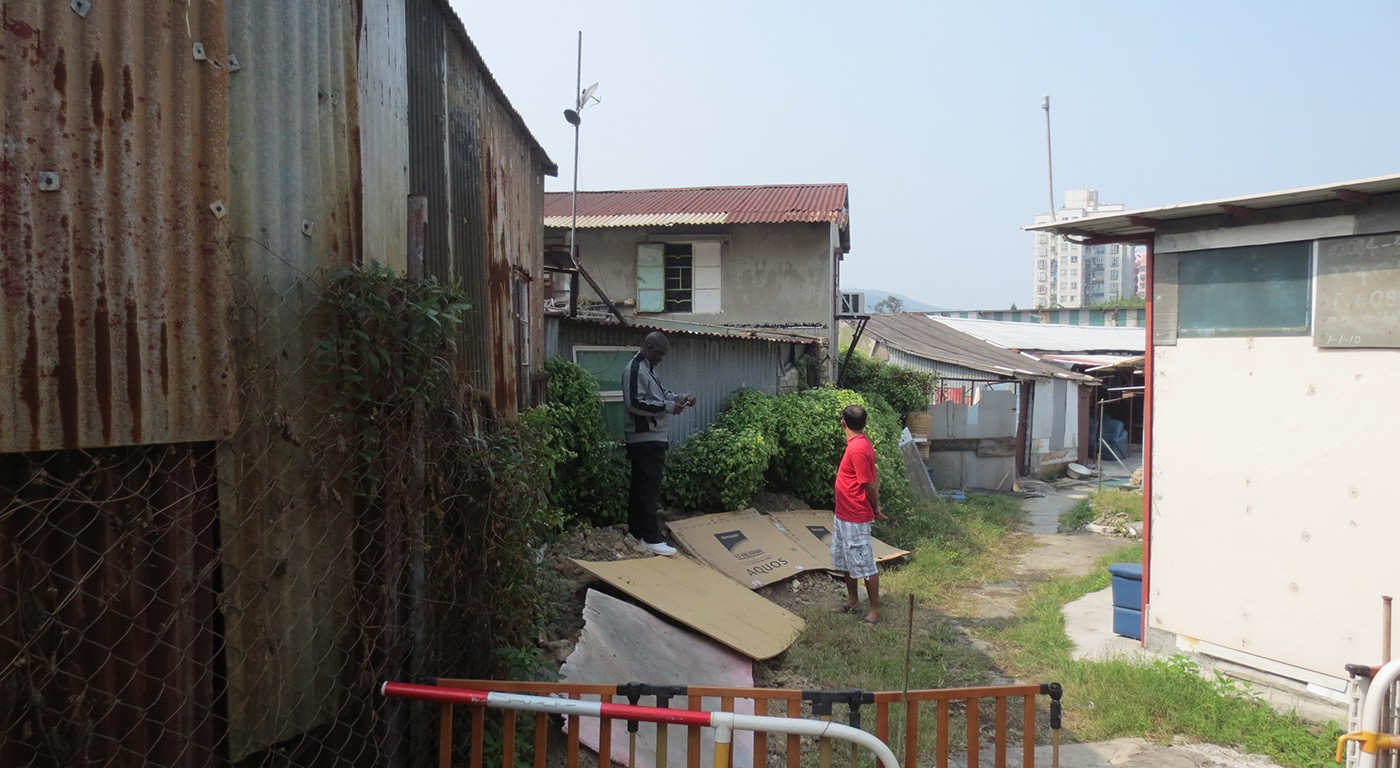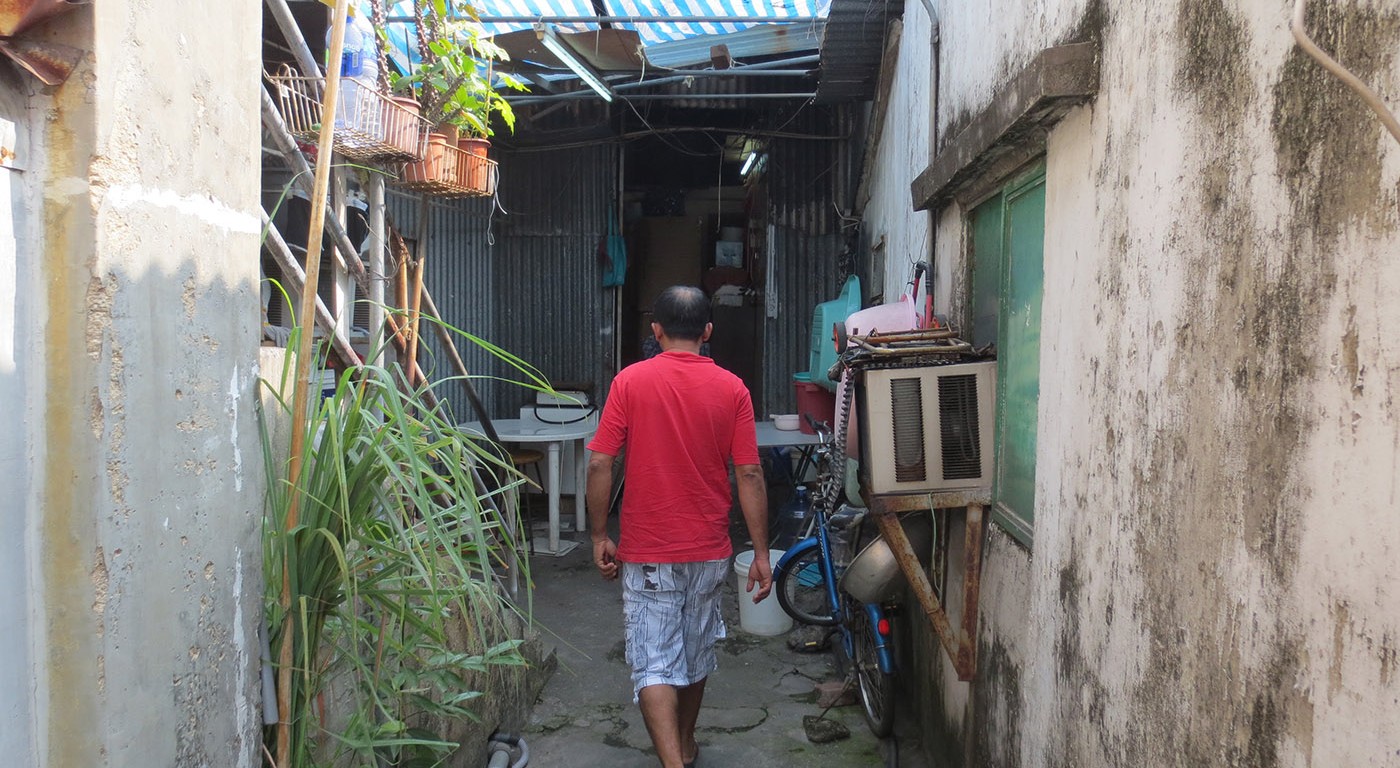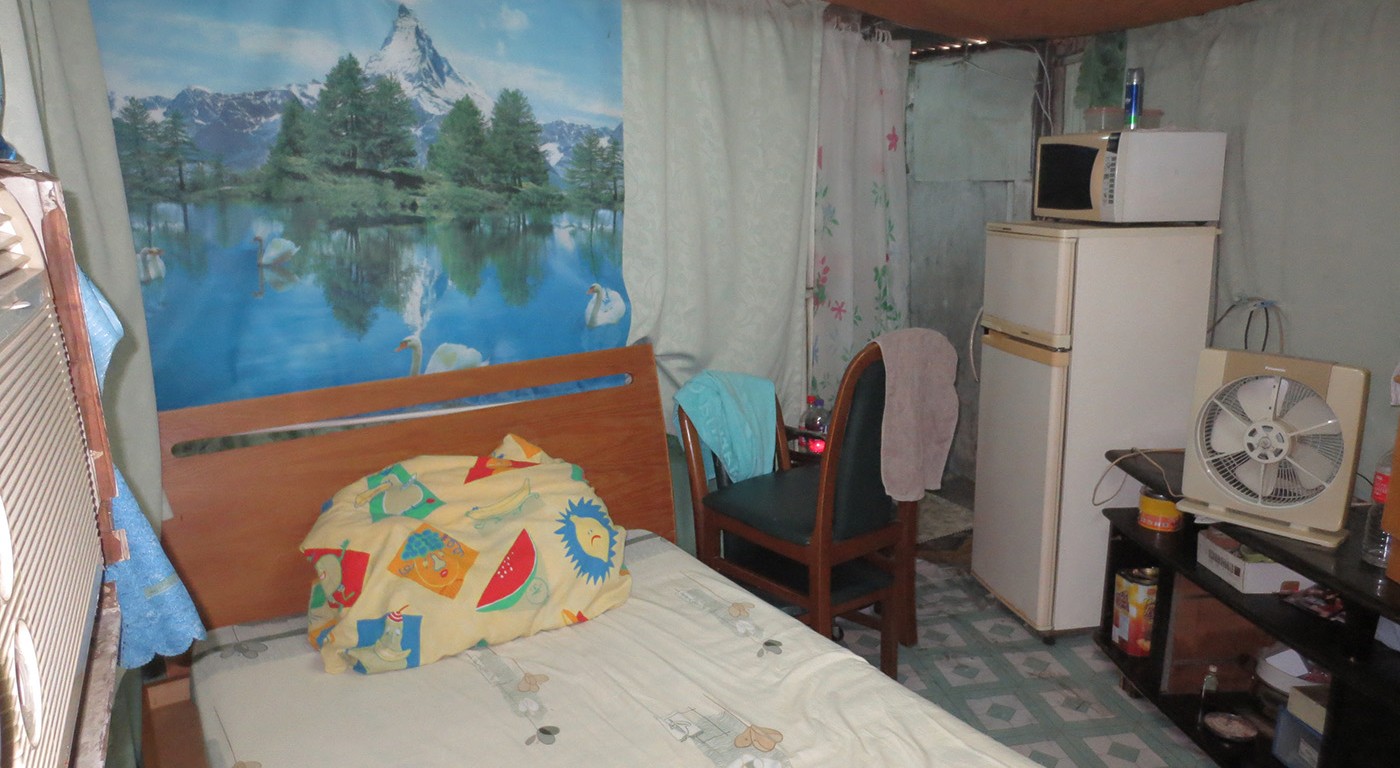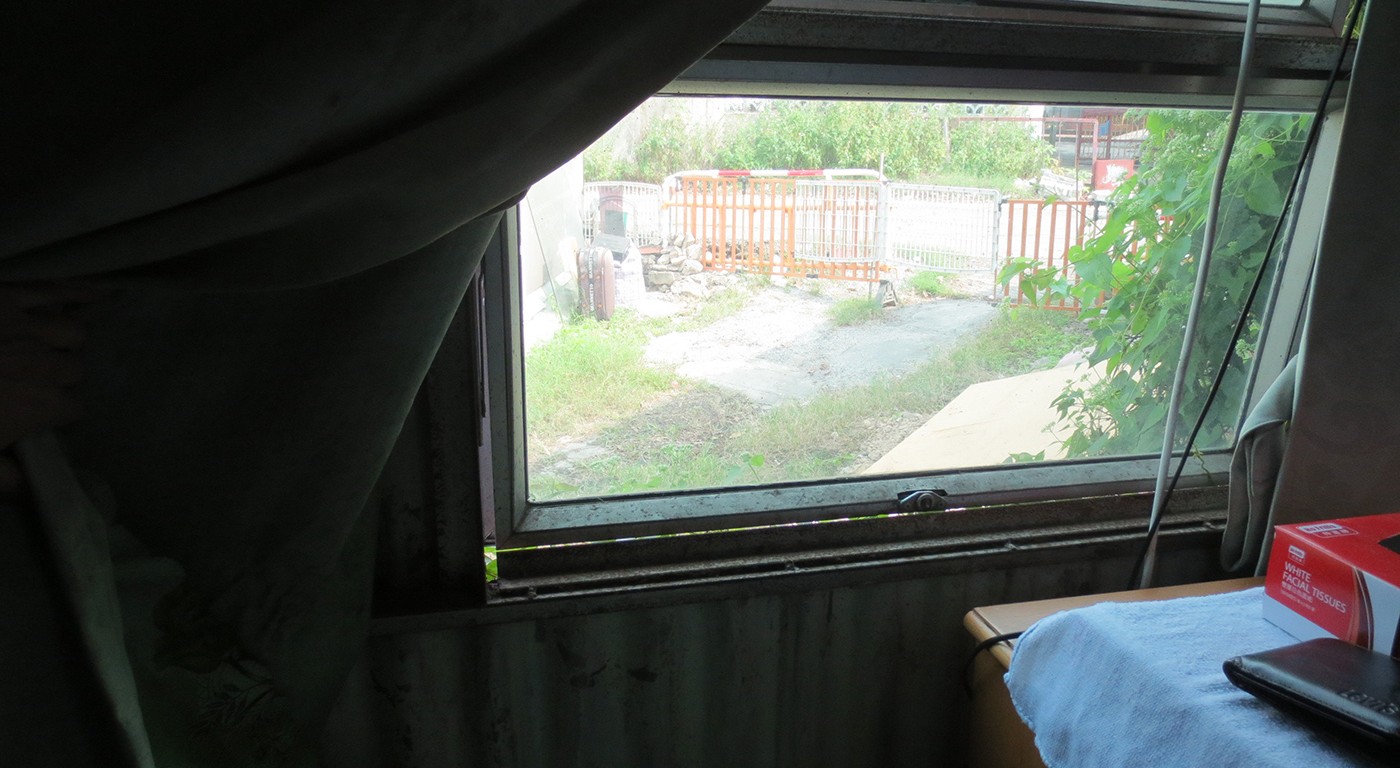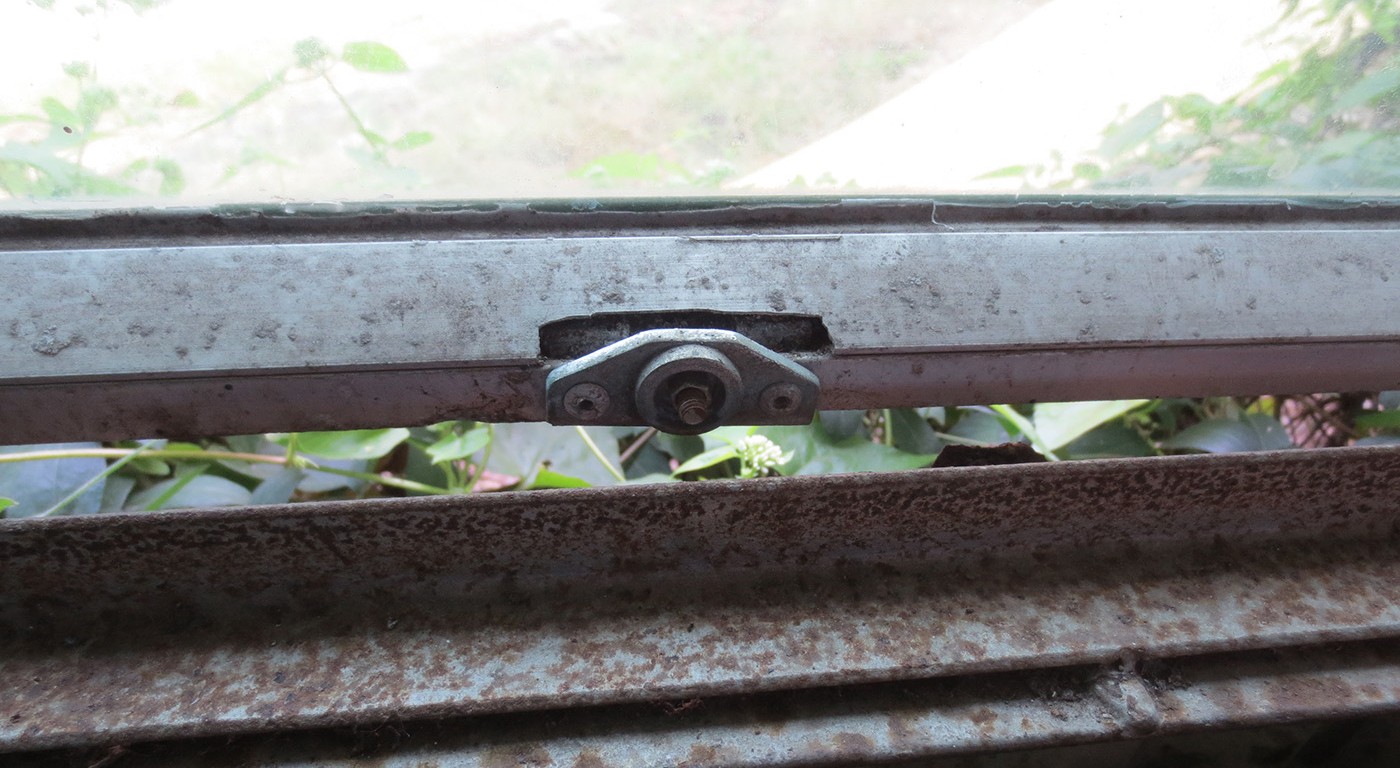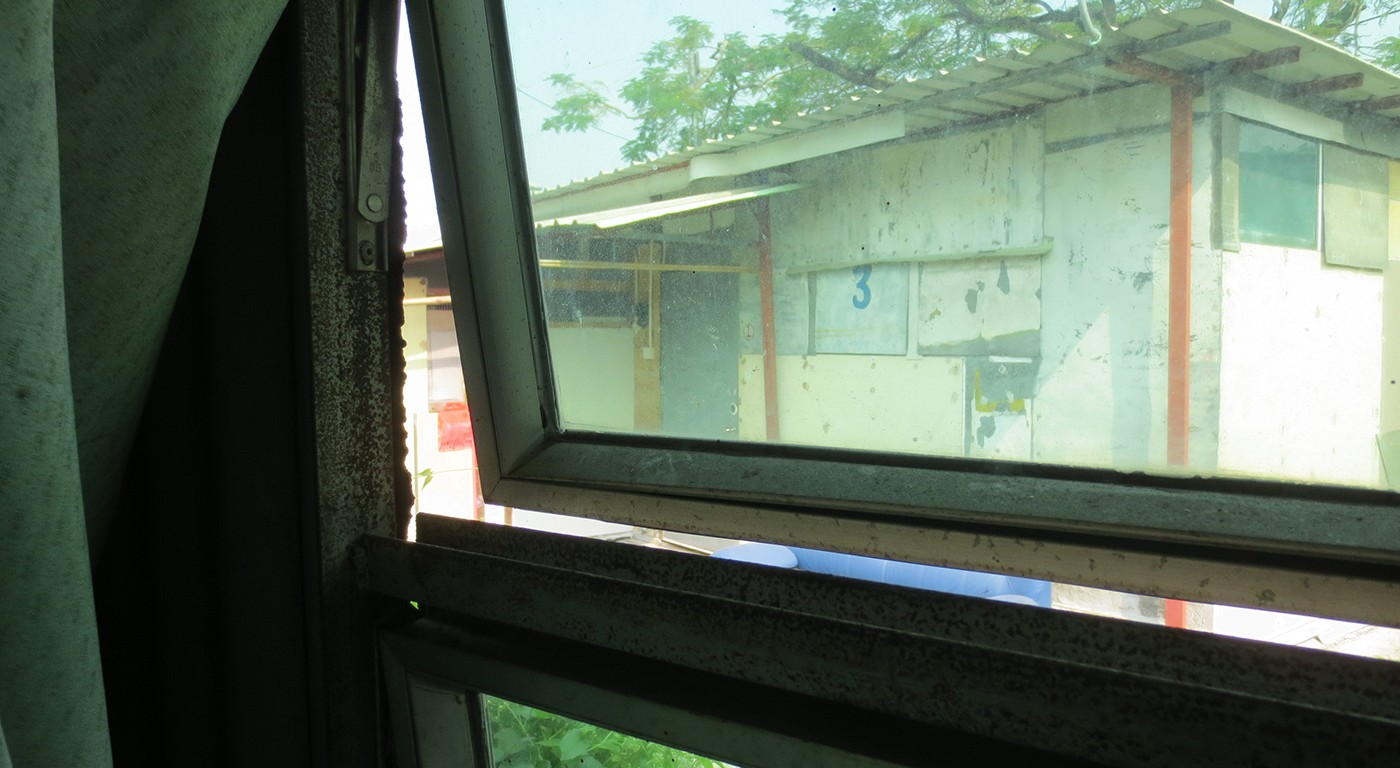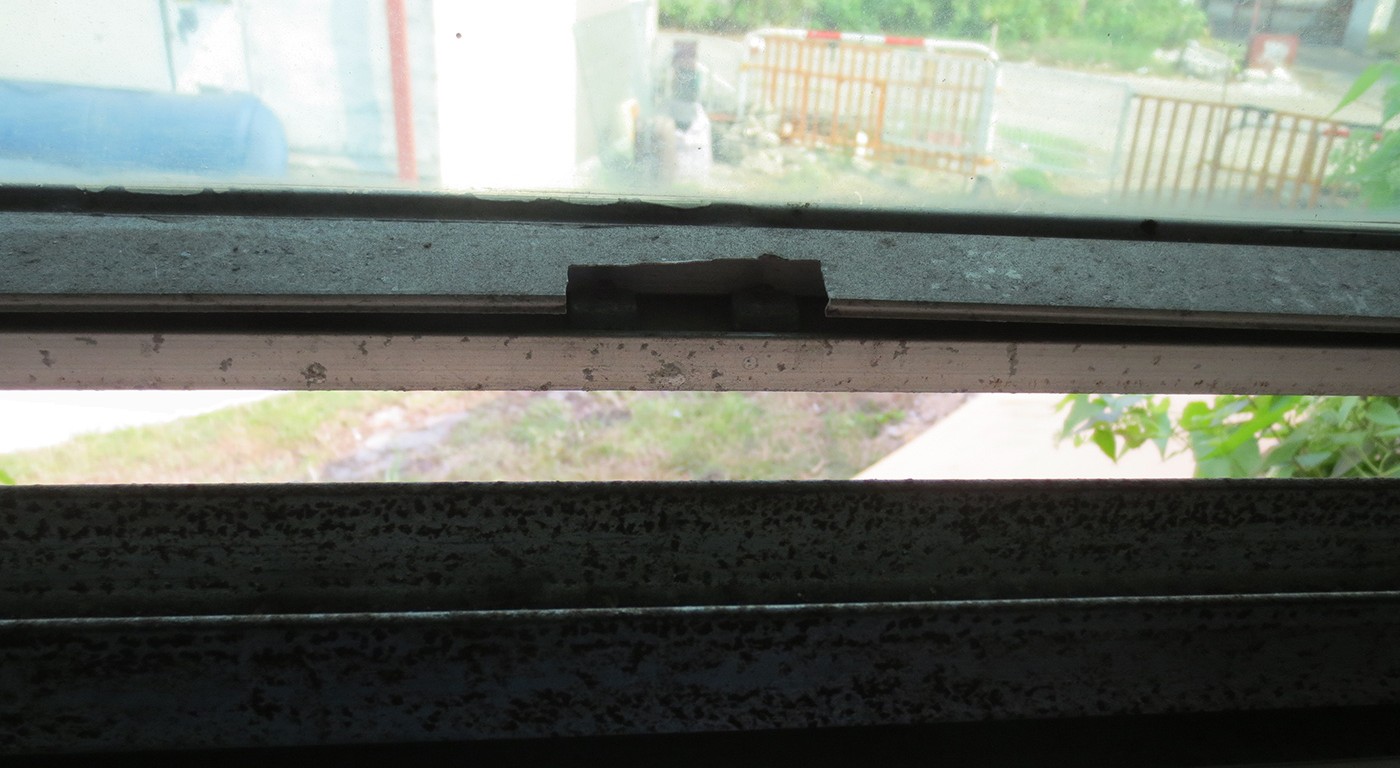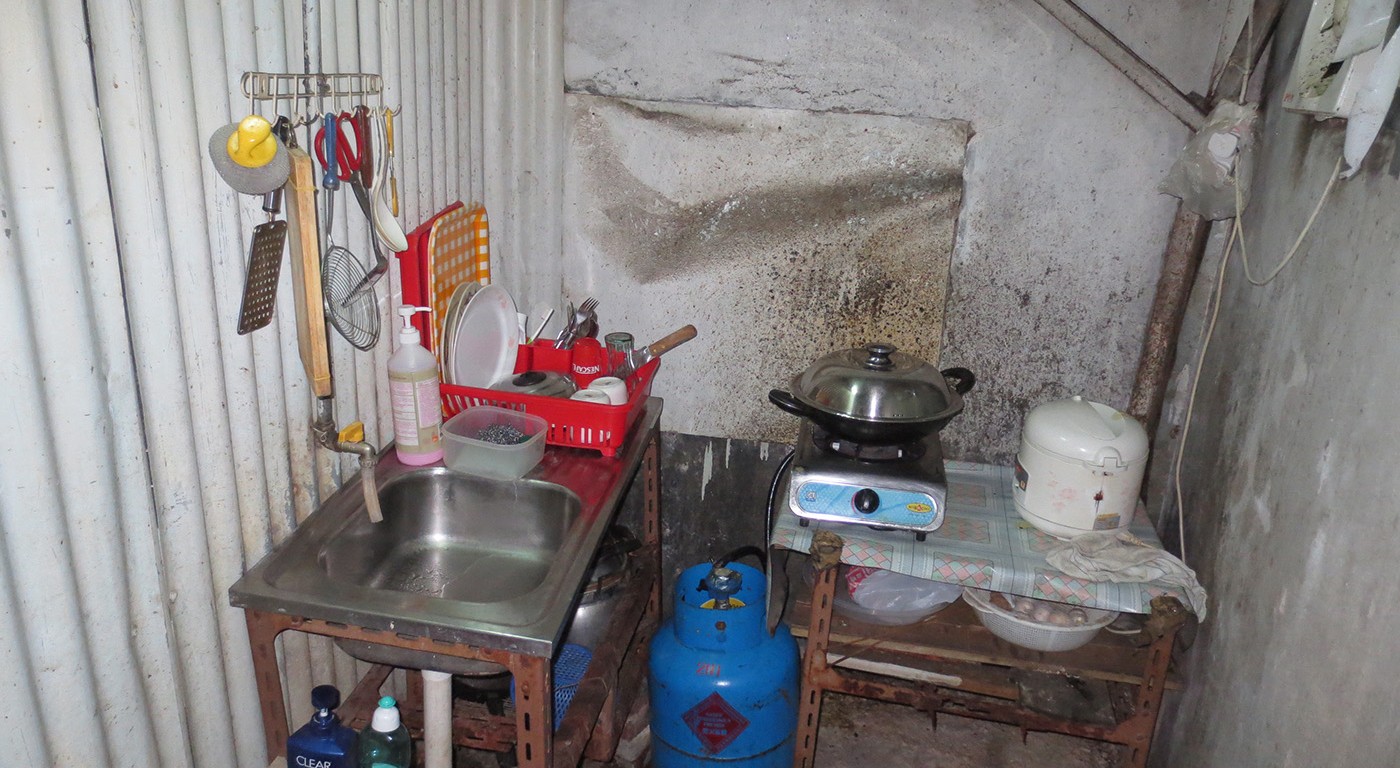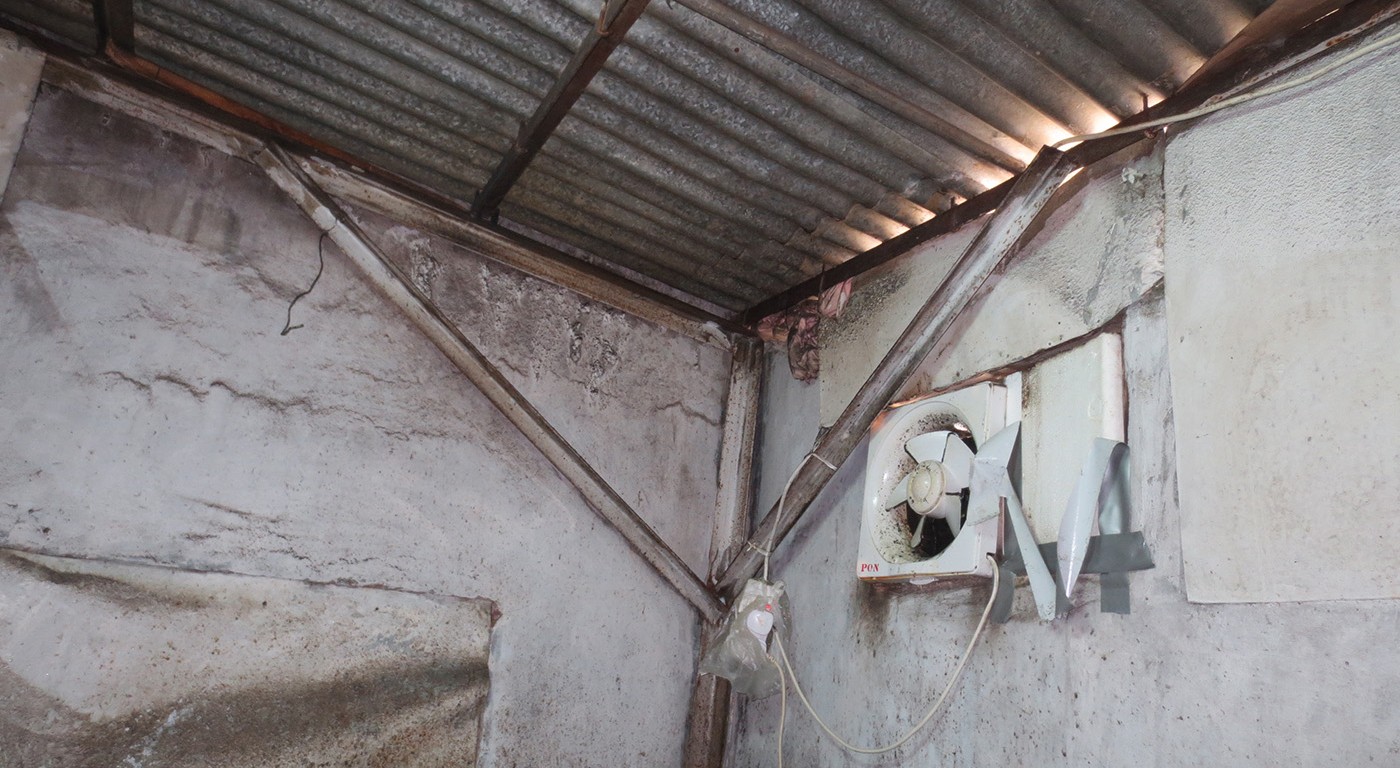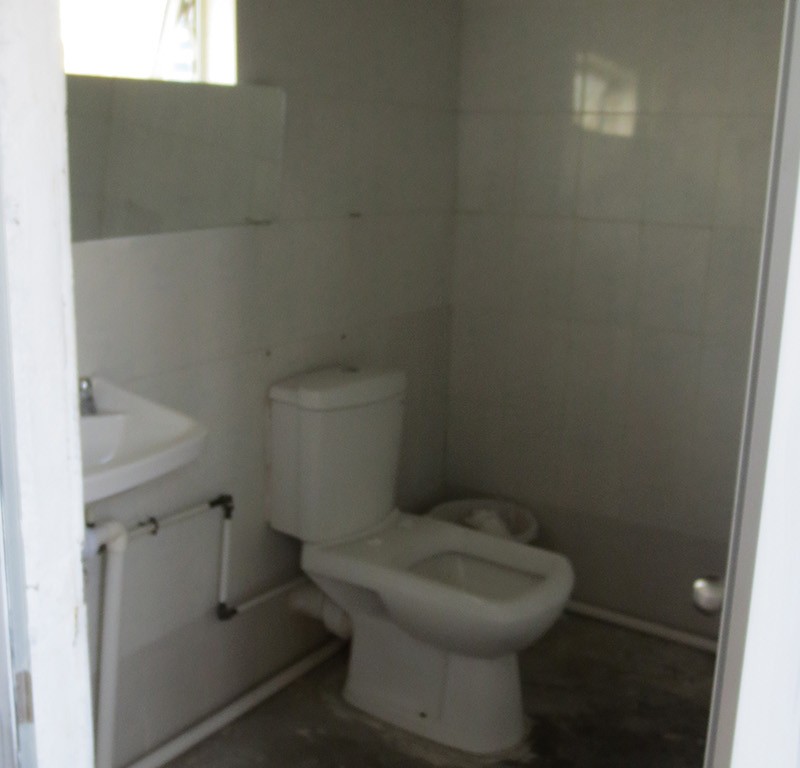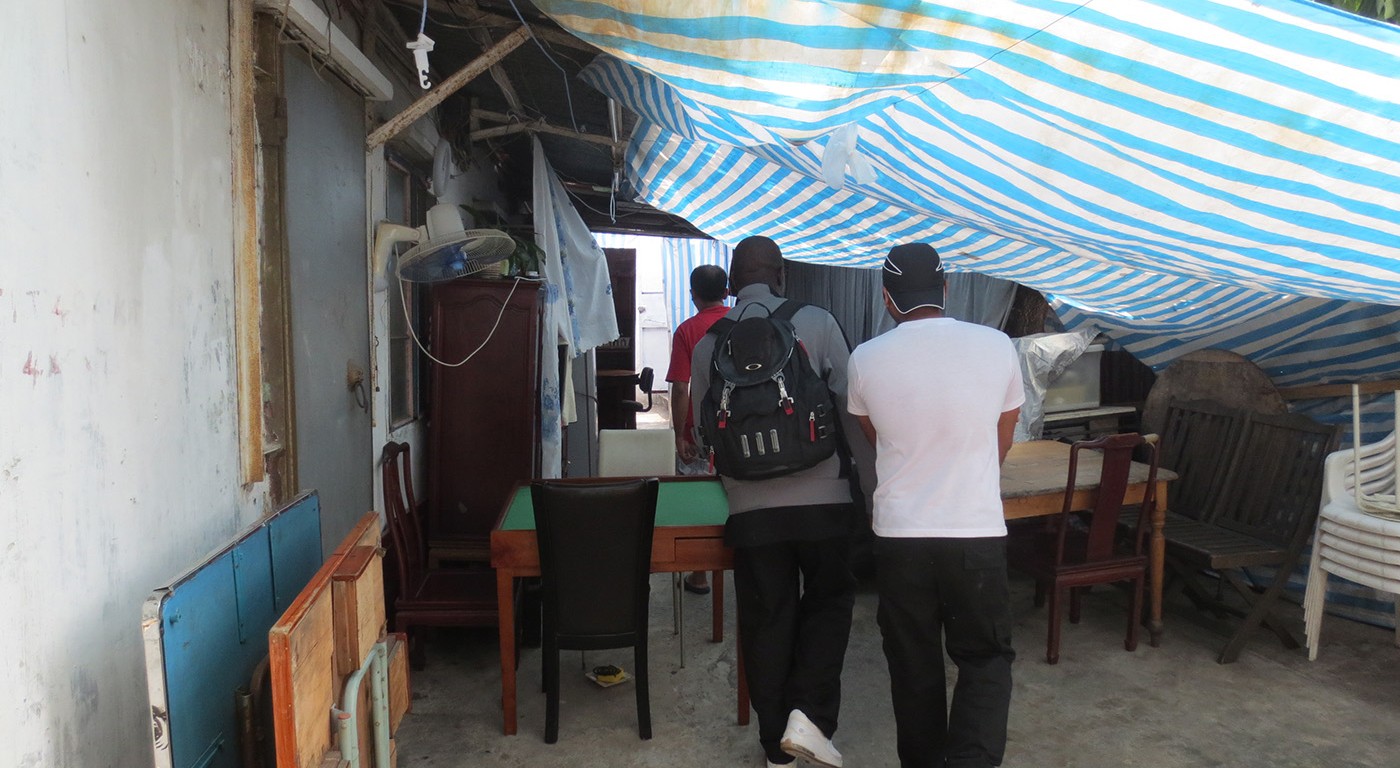Archive
No. 68 – The Slum With New Walls
Nov 26th, 2014 | Advocacy | Comment
On 18 November 2014, Vision First gained access to another secluded refugee slum for the first time. We had explored this area before, but were not aware that refugees lived inside this rusty compound hidden by a high metal gate and wall. It was hard to distinguish this slum from a scrapyard until a collaborative refugee led us inside.
Isolated locations such as this one are ideal to conceal questionable practices such as the housing of refugees within the 1500$ rent budget that cannot be achieved in the open market. Over a half-hour walk from the closest Light Rail Train, a dozen refugees have been settled here for years with the support and approval of ISS-HK case workers
Inside there are two areas: a rickety two-storey metal structure (rooms on the ground floor) and an outside extension where metal shacks were recently converted into windowless concrete cubes with tin roofs baking in the sun. The owner might be following guidelines for more solid construction though these structures seem suspiciously illegal to an untrained eye.
The facilities can hardly be called such: sinks hangs precariously from rusty metal sheets; shower spaces are concrete floors with iron sheets with water (cold only) scooped from plastic bins; cooking is done outside against brick walls or side tables; a shared toilet is mounted in a corner without flushing water.
This appalling assemble of improper housing structures (and suspicious electrical wiring) is home to about ten refugees who are prohibited from working to supplement their 1500$ rent assistance. Such constraints leave vulnerable refugees at the mercy of unscrupulous landlords who seem to enjoy the support of ISS-HK to ensure there are no vacancies in refugee slums in rural Hong Kong.
No. 67 – The slum with broken windows
Nov 20th, 2014 | Advocacy | Comment
Eighteen months ago, on 19 May 2013, Vision First exposed the deplorable (and in our view illegal) living conditions of refugees residing in alleged illegal structures supported and subvented by ISS-HK with rent assistance paid to purported landlords from the government purse.
One and a half year later, little has ostensibly changed, except for Vision First being sued for defamation by ISS-HK. Despite overwhelming evidence presented to local and international media, including CNN exposing “Hong Kong’s shameful treatment of refugees”, civil society remains embarrassingly silent about the government abuse of vulnerable refugees.
A code of silence apparently paralyzes social workers, refugee workers and legal practitioners who work daily with the refugee community. These professionals are presumably concerned with human rights, protection and justice, however, to our knowledge, nobody visits the slums or reports on the cruel, inhuman and degrading treatment of refugees living in abject destitution. Why?
In the second half of 2014, Vision First exposed sixty-six (66) refugee slums where protection claimants are housed in blatant disregard of numerous laws relating to building structures, rental properties, health and hygiene, fire safety and others. It is perplexing that not a single government department stepped forward to address related problems. Why?
In this bleak environment Vision First is undaunted in its mission to counter refugee slums in Hong Kong and the deplorable treatment of hundreds of men, women and children forced into unacceptable living conditions. A handful of the worse slums were closed down when ISS-HK stopped renewing (questionable) tenancy agreements, though business is thriving in others.
This marked an apparent shift in policy. Prior to the slums being exposed, there seemed to be little concern for proof of ownership. Currently ISS-HK case workers only approve alleged illegal structures where landlords prove ownership of the land. Vision First takes credit for this small, but meaningful success that could be interpreted as an indirect admission of responsibility.
“I lived in this metal hut for three years” said a Bangladeshi refugee, “My case worker [from ISS-HK] took photos to show the bed and the fridge and the fabric covering the metal sheets. She didn’t want to see what was behind.” Such superficial and arguably misleading documentation might submit to the Social Welfare Department contracts and photos supporting adequate housing.
SWD officials are invited to join Vision First in a field inspection of the slums. They would learn that, for example, the new compound illustrated below (“Slum Number 67”) is comprised of metal huts with broken window frames and broken windows that cannot be closed because missing handles. Cooking and washing facilities are appalling and the toilet is several minutes’ walk from the hut. The grim reality its tenant endures is not reflected by the tenancy agreement and a photo of his bed.
Refugees’ shabby compound appals activists
May 19th, 2013 | Advocacy, Media | Comment
John Carney writes for South China Morning Post on 19 May 2013
Bangladeshi asylum seekers, claiming torture in their homeland, scratch out shabby existence
Twelve Bangladeshi asylum seekers are enduring “unliveable conditions” in Ping Che that should shock the government into doing more for a community excluded from society, local human rights activists say. Their compound is pest- infested and lacks proper sewerage. Officials must take drastic action before the stark existence of these Bangladeshis worsened, said Vision First, an NGO that advocates rights for people seeking protection, and human-rights barrister Robert Tibbo. Vision First executive director Cosmo Beatson said: “These dangerous, dirty, unliveable conditions must be exposed as a matter of social justice, because Hong Kong has an obligation to treat fairly those who seek asylum here. They are invisible to society.” The men, who are between 23 and 40 years old, all claim to have been victims of torture. They each pay rent of up to HK$1,400 a month to live in roughly built shacks, accessed via narrow paths that pass stagnant streams, in the compound in the northeastern New Territories.
One miserable room housed a mother and her three-month-old baby. Plumbing is non-existent. Kitchens, showers and toilets flow into open conduits infested by insects and rodents. The residents wait for the rain to wash the conduits clean. “We are being treated like animals,” said Ali, 23. “We have [done] nothing wrong, so why should we be treated this way?” The compound is one of several housing more than 150 South Asian refugees in the Ping Che area. There are similar shanties in Nai Wai, Kam Tin and Pat Heung. Asylum seekers receive government help with rent – HK$1,200 per month paid directly to the landlord – groceries every 10 days and other basic necessities, such as toiletries and money for transport to government appointments. The help is given in kind – not in cash – by International Social Service, a non-governmental organisation commissioned by the Social Welfare Department.
However, Tibbo said that despite inflation and rising rents, the government aid had remained the same. “That fact that the amount given to asylum seekers has remained static has meant that their lives just get tougher,” he said. “It’s then they are forced to work illegally for a pittance to make ends meet.” Hong Kong does not allow asylum seekers to work. Some of the Bangladeshis in Ping Che did manual labour for HK$300 a day to help make ends meet, but a few days after the Sunday Morning Post visited their compound, two of the residents were arrested for working illegally and could now face a minimum of 15 months in jail if they plead guilty. Lawmaker Dr Fernando Cheung Chiu-hung said he backed Beatson’s and Tibbo’s mission and would raise the issue in the Legislative Council. International Social Service did not reply to questions about the situation.
